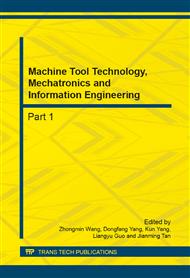p.5202
p.5207
p.5211
p.5216
p.5220
p.5224
p.5227
p.5231
p.5235
Toxic Effects of Crude Oil Water Accommodated Fractions on the Cardiac Function of Marine Medaka (Oryzias melastigma) Embryo
Abstract:
The marine medaka Oryzias melastigma was used as model organism to detect and evaluate the cardiac function alterations of medaka embryos due to oil exposure induced ecotoxicological effect in the present study. Results showed that the developing medaka heart was a sensitive target organ for the toxic effects of crude oil. Cardiac function of medaka embryos was clearly affected by exposure to WAF of crude oil after 24 hours exposure. Significant differences in cardiac structure and function of medaka embryo were found between exposed and control groups. The chemicals in crude oil slowed down the embryos heart rates, reduced cardiac contractility capability and causes irregular heartbeats. At higher exposure concentrations (7.2 mg/L), swelled and enlarged heart morphology, lower blood circulation and accumulation of blood around the heart area was found. These findings indicate that cardiac function of marine medaka embryo may be used as a toxicity model and biomarker for oil pollution.
Info:
Periodical:
Pages:
5220-5223
Citation:
Online since:
September 2014
Authors:
Keywords:
Price:
Сopyright:
© 2014 Trans Tech Publications Ltd. All Rights Reserved
Share:
Citation:


